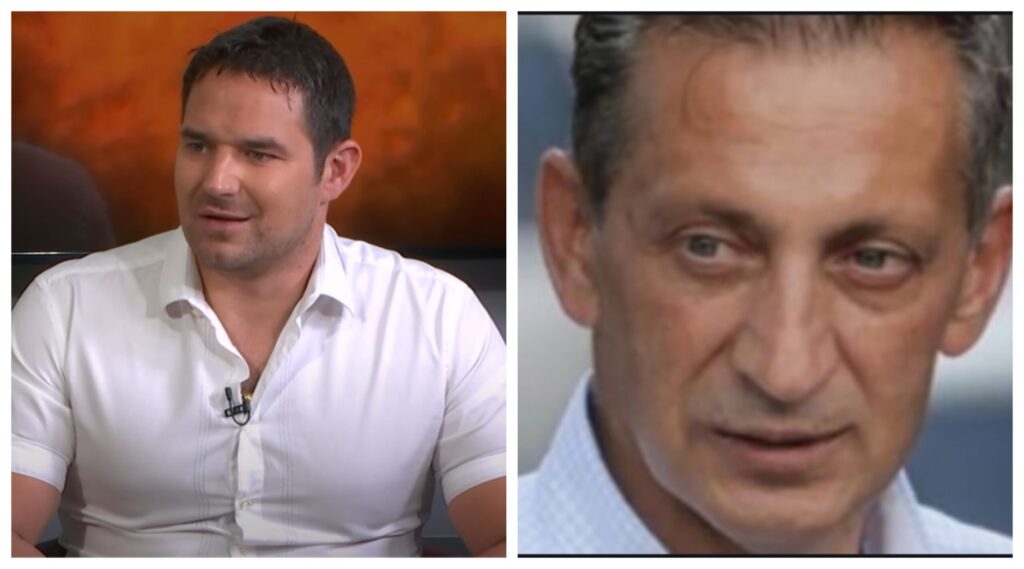For six months, Bosnia and Herzegovina has not allowed the tax law expert Rok Snežič, Ph.D., to enter the country in which he lives with his wife and children, and operates business. He intiated numerous legal proceedings and received no response. He asked the European Court of Human Rights (ECHR) to issue an interim measure to reunite him with his family.
With some exceptions, under Article 8 of the European Convention on Human Rights, every person has a right to enter a country in which they do business or have a family. Everyone also has a right to receive a reasoned decision on why they are banned from entering a Council of Europe member state. For six months, Bosnia has failed to state any reasons, and has not issued any official decision ot document. In such cases, the ECHR issues interim measures against member states under Article 39 of the Convention.
For a long time now, the head of the Intelligence-Security Agency of Bosnia and Herzegovina, Osman Mehmedagić, has been preventing Snežič from entering Bosnia and Herzegovina. He is the only man who has the right to decide for himself who is allowed to enter the country and who is not. In the past, we have already reported on several scandals involving the head of the Bosnian intelligence service. On the 18th of February, his five-year license to access classified information expired. We have already written about the fact that the head of the Intelligence-Security Agency of Bosnia and Herzegovina should not be granted further access to classified information, as this would seriously violate Bosnian law. However, the Bosnian media outlets received official information from the security ministry that Mehmedagić had not been granted access to classified information after all.
Chief of the Intelligence-Security Agency of Bosnia and Herzegovina does not let Snežič enter the country because of political games; however, he let the infamous Balkan criminal Naser Kelmendi enter the country
In recent months, we have repeatedly reported on the operations of the Slovenian tax expert in Bosnia and Herzegovina. The affair was often fuelled by the Bosnian journalist Avdo Avdić, and the news show 24ur was usually the first Slovenian media to summarise the affair on the largest private commercial television station in Slovenia – POP TV/Kanal A. We revealed that the editor-in-chief of 24ur, Tjaša Slokar Kos, also worked with one of Avdić’s media outlets in the past. And the straw that broke the camel’s back was the fact that Avdić and Mehmedagič had been caught in public together several times during their joint operation.
Mehmedagič has also proven in the past that he has no problem with letting the worst Balkan criminals into the country. Thus, just a few months before Snežič’s expulsion, he let in the mafia boss from Kosovo, Naser Kelmendi. In 2018, Kelmendi was convicted of drug trafficking in Pristina and is on the blacklist of the United States.
Snežič also told the Delo newspaper that he works in the territory of Republika Srpska all the time, while he is hardly ever in the territory of the Federation of BiH. He reiterated that he finds the whole situation extremely unusual. He pointed out that it is not clear to him why Mehmedagić does not want to let him into the area of Republika Srpska, where his home and company are located.
Snežič will also seek justice at the European Court of Human Rights
Due to all of the above, tax expert Rok Snežič, Ph.D., has now decided to file criminal charges in Bosnia and Herzegovina and Slovenia against an unknown perpetrator from the Intelligence-Security Agency of Bosnia and Herzegovina, who, according to his information, is responsible for banning him from entering BiH, as he is supposedly a threat to the security and integrity of the country. In the past, it has also been revealed that Mehmedagić has a major influence on the Bosnian judiciary. This is why Snežič also filed a criminal complaint due to allegations of abuse of office in Slovenia.
Snežič has also decided to seek justice at the European Court of Human Rights. There, he will initiate proceedings for an interim injunction, which would force the state of Bosnia and Herzegovina to lift the illegal – according to the long-term businessman in BiH – ban on entering the country. Snežič also said that the Bosnian authorities, led by Mehmedagić, are in direct violation of Article 6 of the Convention on the Rights of the Child, which stipulates contact with the family. This right could only be restricted for Snežič if he was actually convicted of something in BiH.
We will continue to follow the case of Rok Snežič in the future. It is becoming increasingly clear that the political persecution of Snežič is only happening because of him knowing certain politicians from the right-wing political pole. This only proves that the legal system only works for “their people.”
Luka Perš


